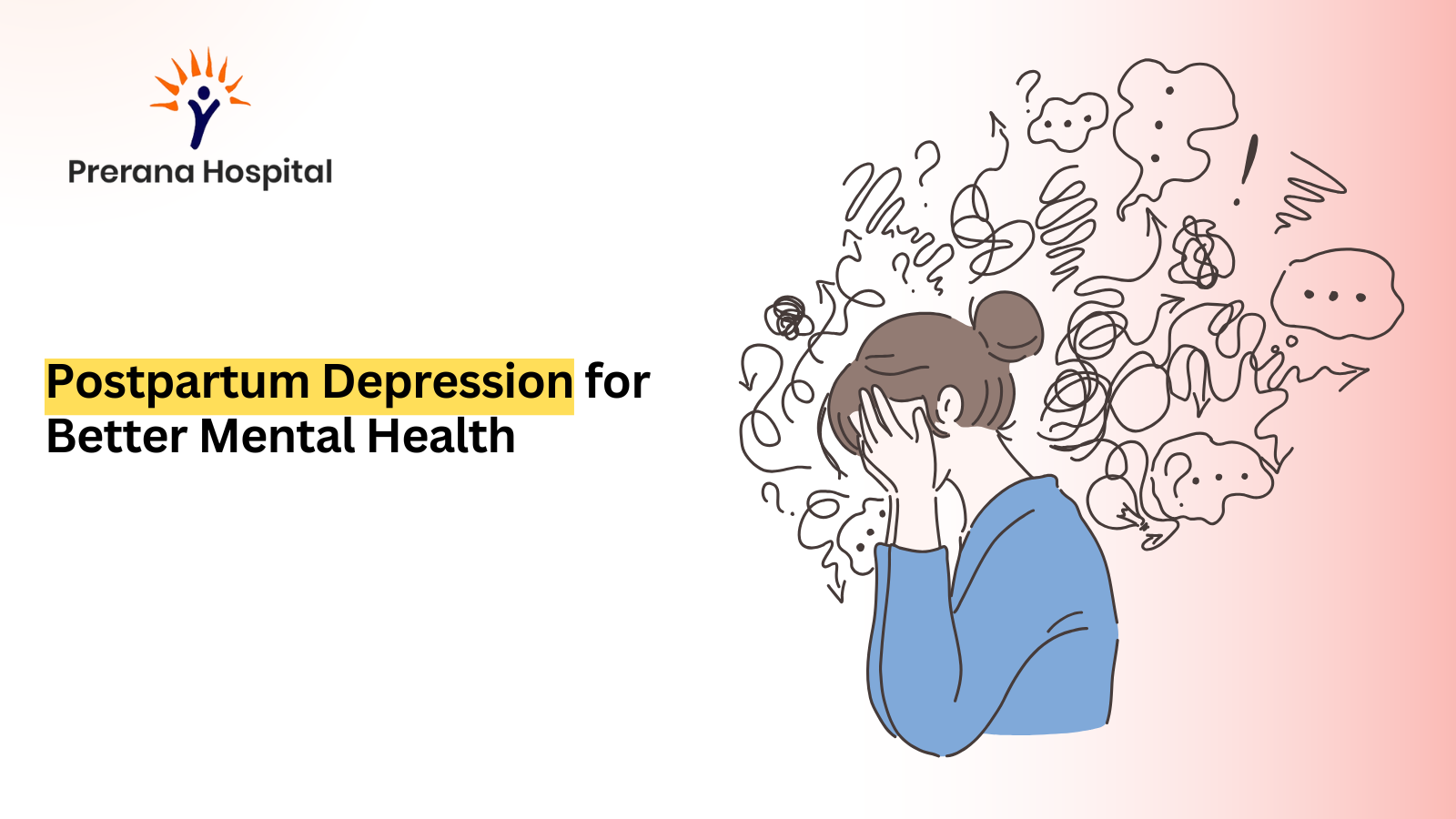

Please call +91 72042 70871 for outpatient appointments. The hospital is available for emergency 24/7.


Becoming a mother can be a life-changing experience, but for many women, the joy of welcoming a baby is overshadowed by postpartum depression (PPD). This condition affects 22% of Indian mothers, according to the Asian Journal of Psychiatry. Though PPD affects mother’s well-being and their ability to take care of their babies, it is manageable and treatable with professional help.
This blog shares some insights into postpartum depression, its symptoms, and the importance of timely intervention and treatment, thus helping make an informed decision about your mental health post-delivery.
PPD is a mental health condition that occurs after giving birth. It is characterised by intense mood swings, feelings of sadness or loneliness, and regular crying spells.
Symptoms of post-childbirth depression are:
PPD significantly impacts the emotional connection and bonding between a mother and infant, which is crucial for the child's cognitive, social-emotional, and physical development. PPD can last for months or more and sometimes may become an ongoing disorder. So, delaying the treatment can hinder attachment and aggravate symptoms, thus leading to long-term consequences. Conversely, early diagnosis and intervention help create a healthy, lasting bond between you and your baby, prevent relapse, and mitigate associated emotional and financial burdens.
Timely treatment ensures:
The postpartum period can bring emotional challenges, physical exhaustion, and mental health concerns. To address these complexities, you can practise the following things:
If you have trouble coping with PPD even after trying these things, consider professional mental health support that includes various treatments and therapies for enhanced mental health.
Depending on the severity of your symptoms, postpartum depression treatment may include medicines, therapy, or both.
Along with these professional treatments, you can follow some lifestyle changes to expedite your recovery from PPD, which include:
Visit your healthcare provider for PPD if you:
Postpartum depression is a prevalent yet treatable mental health condition that impacts many women after childbirth. Recognising and addressing PPD in its early stages is critical for both the mother's and baby's well-being. Early intervention can lead to enhanced bonding between mother and baby, reduced consequences, and optimal child development. So, act earlier to enjoy improved mental health.
Are you or a loved one struggling with signs of postpartum depression? Hope and healing are within reach. At Prerana Hospital, our compassionate team of experts stands ready to guide you through the recovery journey. We combine therapy, self-care, and lifestyle changes to ensure comprehensive treatment and care, improving your mental health and wellness. Contact us today to embark on a worry-free, relaxed motherhood.